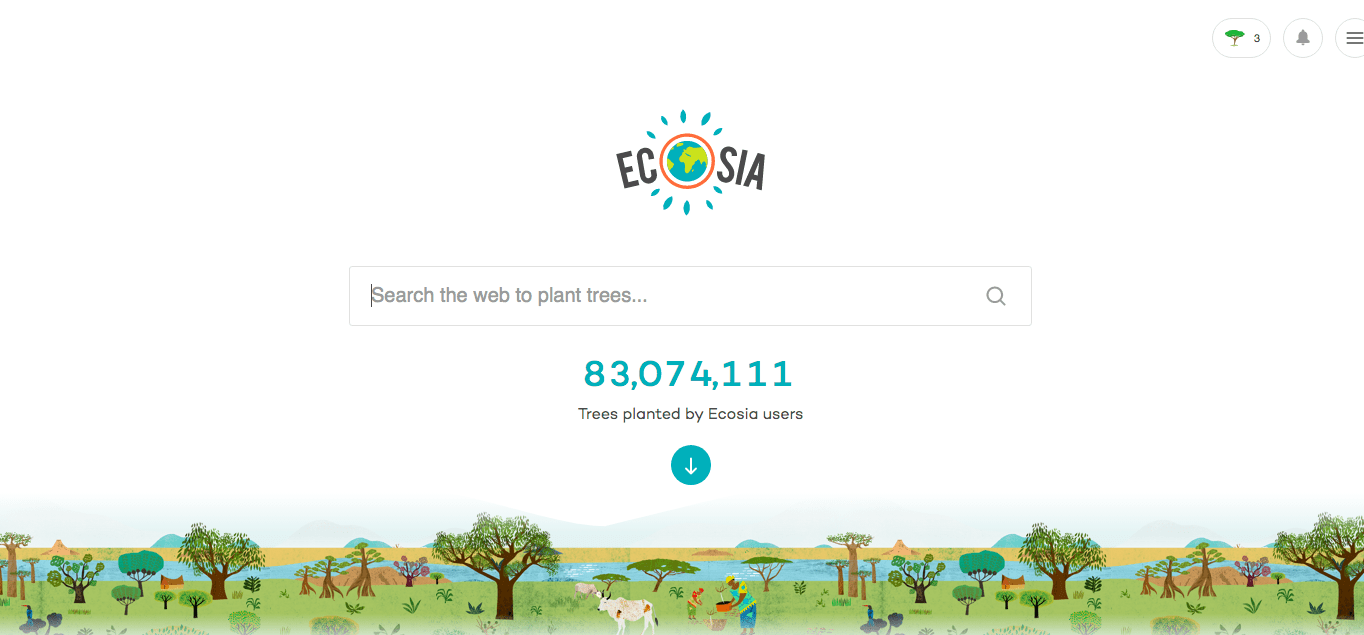Last month, the University of Leeds left Google behind, switching its default search engine to Ecosia. This web browser uses ad revenue to fund tree planting and environmental projects across the globe.
In the short time since installation, over 390,000 Ecosia searches have been carried out from University computers. This means the University of Leeds has helped finance the planting of over 4,600 trees so far.
This is a great start to the year by all accounts, including that of student Hugh Kendall, a brainchild behind the campaign to get Ecosia installed at the university.
Three students from the university campaigned for 14 months in order to get Leeds to adopt Ecosia as its default search engine. Their proposal was successfully passed at a Better University Forum last year, making Leeds the first Russell Group university to adopt Ecosia as their default web browser.
The “Leeds on Ecosia” facebook page now shares monthly updates on the impact the University is having through using Ecosia, and can be found here.
Yet Hugh believes there is still more to be done. He states that the “next step [he is] taking is to get Ecosia on the 15 minute timed computers”. These library computers are yet to be linked to Ecosia, and could increase Leeds’ positive environmental impact even further.

So how exactly does Ecosia work? Well Ecosia generates its revenue from ads, just like Google and other search engines. However, unlike other browsers, Ecosia does not retain its profits, and uses them to plant trees. A phenomenal 86 million trees have been planted by Ecosia so far, serving to counteract carbon emissions and combat deforestation. It has also created over 32,000 jobs in developing countries.
Nick Hastreiter deconstructed the way searches correspond to tree planting. He explained that “an average search generates around €0.005 of revenue. It costs roughly €0.25 to plant a tree, which means that Ecosia can plant one tree every 50 searches. On average, these trees will each remove 50 kg of CO2 during their lifetime”.
Since its conception in 2009, Ecosia has supported various tree planting programs. This included the Plant a Billion Trees program, which aimed to restore the Brazilian Atlantic Forest by planting one million native trees there, by 2015. Over 80% of its profits go directly to not-for-profit organisations which focus on reforestation projects, including the Eden Reforestation Projects. They have had a positive impact in 16 countries, across the globe.
Recently, Ecosia has helped combat the devastation caused by the Australian wildfires. This environmental catastrophe saw an area the size of South Korea go up in smoke. Air quality in Melbourne was deemed “the worst in the world”.
Ecosia have been using some of their profits to plant native trees in the Byron Bay area, which was badly affected. Ecosia is only likely to continue growing, as more people, more universities, and more businesses wake up to the positive impact this simple change can make.
Thanks to the ‘Leeds on Ecosia’ campaign, Leeds is leading the way. In the last month, we have removed 390,000 of carbon from the atmosphere by using Ecosia on campus computers. The future will undoubtedly see even more positive change.

